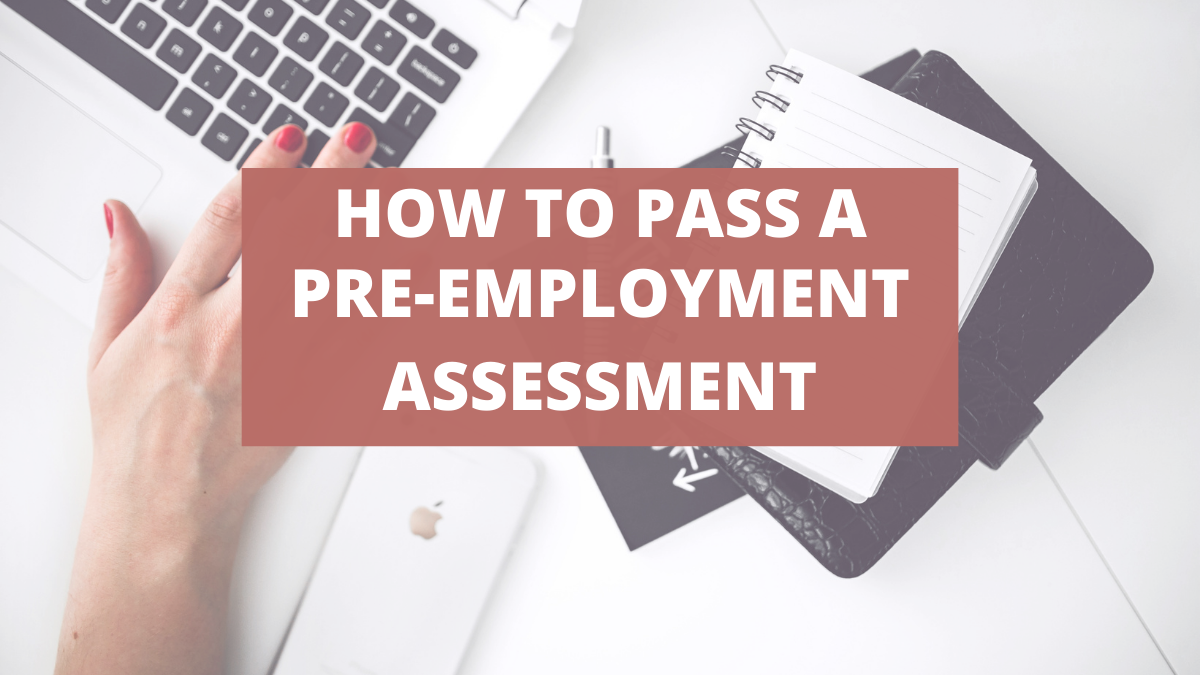
Unusual Pre-Employment Tests and How to Pass Them
30/06/2020
Hiring mistakes are costly. Between the time spent defining the job and selecting candidates, the amount of the first salaries paid, and the compensation for the termination of the employment contract, the estimated cost could reach thousands of euros per position. But you can avoid them and reduce employee turnover!
To make no mistake, in addition to their traditional range of tools, recruiters use pre-employment tests developed by them and not included in any hiring manual: from a walk in the woods to face-camera tests. These unusual tests allow them to gauge the soundness of an application in the blink of an eye. And in this subtle game of cat and mouse, applicants also benefit from these unique and clever tests. They save them from getting stuck in a job where they would not perform well and where they would feel devalued. In short, the goal is not to lay a trap for candidates, but to take stock of the reality of their aspirations and their suitability for the position. The tests unveiled here will take you behind the scenes of recruitment.
1. ‘Tell me about your childhood…’
Every manager who is called upon to recruit recognizes this: the hardest thing is to identify the candidate's personality. To bring them out of their shell, recruiters totally reverse the course of the interview. They ask them to talk about their early childhood, focusing on their interests and hobbies. As a result, if they want to be hired, candidates must reveal parts of their private life (significant events, life choices, studies...) to make their deepest motivations understood. This test takes time: almost an hour and a half instead of forty-five minutes. In return, the manager makes sure the employee who was given such an attentive ear will integrate more quickly into the company.
2. The treasure hunt
Some companies post on their websites, videos presenting the various businesses and services they offer, thus allowing candidates to get a clear picture of the company, the hard skills they need, and the positions available. And their employees are ready to answer questions ‘very informally’. The goal of the strategy is to eliminate, among tens of thousands CVs received each year, those opportunists who pretend to be interested in the company. Indeed, at this stage of the process, the candidate is just thinking of gleaning some information. In reality, this is already the beginning of the test. Companies keep records of these exchanges to assess applicants’ commitment. Their curiosity shows their interest in the position offer. Beware of superficial motivation: if during the job interview, the candidate asks questions to which they could find answers on your website or if they put forward technical skills that are not relevant to the position, they get eliminated.
3. The serious game
These little movies are still making a lot of noise. They're called realistic job previews. Coca-Cola, Sony, HSBC, and Ikea are already using them. Upstream of the process, on the company's website, an interactive video (serious game style) makes it possible to become aware of the reality of the proposed job. The candidate is invited to play their future role in several situations. A customer breaks down in the shop, a supplier announces a late delivery... How do you react? As soon as he gives an inappropriate answer, the candidate hears: ‘No, that's not what is expected of you, try again.’ Result: those who had a vague idea about the job give up sending in their CVs.
4. Biographic data
This test takes place at a more advanced stage of the process: the candidate has applied, their CV has been liked, and the recruiter asks them to answer an online questionnaire in which they have to translate the prerequisites of the position into personal experiences. For example: ‘Your CV says you are fluent in English, how many meetings have you conducted in English?’ Or: ‘You were a project manager, how many assignments over 25,000 euros have you managed?’ A score is given to each answer so that the candidates understand if they have the right profile. If it’s not the case, they will not pursue the project on their own.
5. True false coaching
Ideal for recruiting fresh graduates. Under the guise of training students for integration into the world of work, organize coaching sessions. Take advantage of this to identify the profiles you need: they are not stressed like in real recruitment, they remain natural and give themselves more. Present the company to them and try to make them want to join you. Recruitment without seeming to mention recruiting, so to speak.
Tips for taking these recruitment tests
The first advice to take these tests would be to arrive as relaxed as possible and to be yourself.
Physical fitness is also important to concentrate well and be in an optimal state to respond as accurately as possible.
Do not try to bypass the system and guess ‘the right’ answers to the questions. This could be the last thing you want to do. The recruiter may realize it because the answers would not be consistent.
Remember that this is not an entrance exam but a test. Although it may encourage recruitment, it’s not the ultimate tool used to disqualify candidates.
